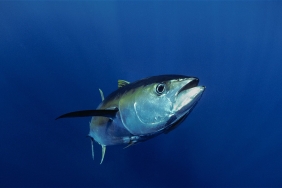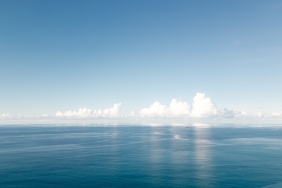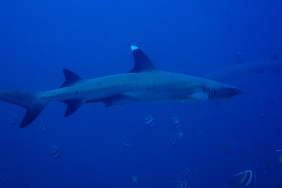DON'T BE AFRAID TO EAT SHELLFISH ANYMORE!
By Windy Rizki and Novita Eka Syaputri
Shellfish is an alternative source of animal protein that is widely found in Indonesia and is quite affordable compared to marine fish. But unfortunately, there are various negative stigmas looming, especially the issue of heavy metal content. This commodity gets a "negative label" because of its way of life that obtains food by filtering (filter feeder) like a vacuum cleaner. This means that shellfish not only absorb their food (plankton), but also whatever is around them. Therefore, if the waters in which they live are polluted with sewage and heavy metal contamination, they will also be absorbed by the mussels into their bodies. This becomes dangerous if the mussels are consumed by humans.
But behind the negative label, there are actually many waters in Indonesia that have considerable potential for shellfish, one of which is around Kenjeran Beach, Surabaya and Sedati, Sidoarjo. Recognizing the great potential of shellfish commodities on the north coast of East Java, WWF-Indonesia and Koalisi Perempuan Indonesia (KPI), as one of the members of JARING-Nusantara, assisted fishing communities on the coast of Kenjeran and Sedati to carry out environmentally friendly and responsible shellfish fishing and processing practices. The WWF-Indonesia team together with Eka Dian Savitri, a representative of KPI East Java Region, recently visited Kenjeran and Sedati to see firsthand how to catch and process shellfish that is environmentally friendly.
Fishermen in Sedati use garit and racking tools, while fishermen in Kenjeran catch clams by handpicking. However, in Sedati there are still many fishermen who use scratching tools with non-selective meshes and are operated in coral reef areas. According to local fishermen, the fishermen who use scratching gear with such nets are newcomers. If the use of non-selective fishing gear continues, it can reduce clam productivity because it has the potential to catch juvenile clams. WWF-Indonesia through JARING-Nusantara and KPI also continues to provide guidance to fishermen to use selective and environmentally friendly fishing methods, namely handpicking.
In Kenjeran, the captured shellfish are further processed into jerky, shredded, crackers, and shellfish nuggets. Siti Chotimah, a local KPI activist and facilitator in East Java, is the one who mobilized local women to process the clams to increase their selling value. According to K. Tri Pursetyo, a shellfish researcher at Airlangga University, the heavy metal content of shellfish from these waters is still below the threshold and is safe enough for consumption and can still be reduced further in several ways, such as removing shellfish waste and then washing the shellfish and soaking them in water mixed with lime or starfruit juice, or by soaking them with sea water / water with the same salinity for 1 - 5 hours.
By maintaining the marine ecosystem and paying attention to how shellfish are caught and processed, we no longer need to be afraid of consuming shellfish, of course in moderation. This has been tried to be done by fishermen assisted by JARING-Nusantara and KPI in Sedati and Kenjeran. It is hoped that there will be more fishermen and industry players who implement environmentally friendly shellfish fishing and processing practices. Of course, the role of many parties is also needed to preserve the marine ecosystem so that it is not polluted.





